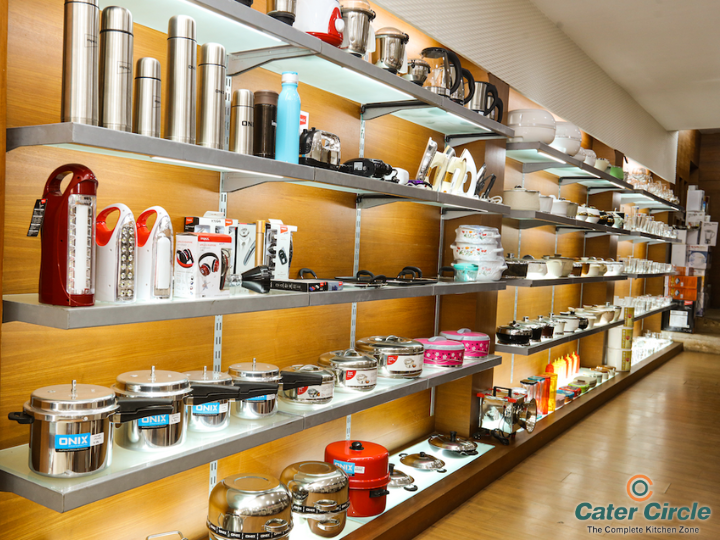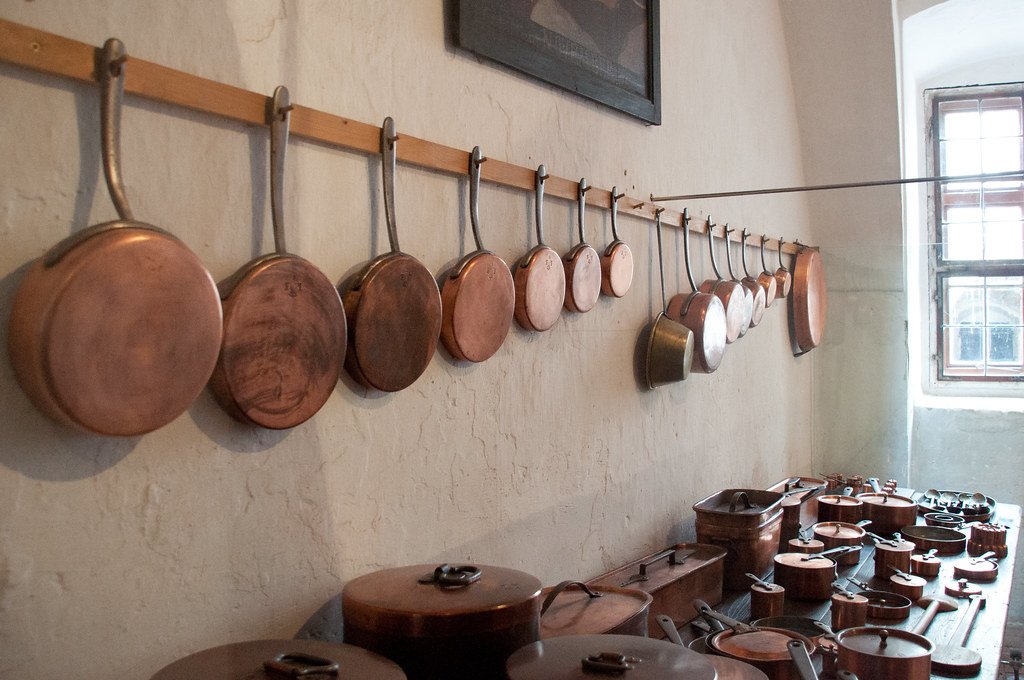Cooking with copper cookware can transform your culinary experience. Whether you’re a seasoned chef or a home cook looking to elevate your kitchen game, copper pots and pans offer superior heat conductivity and a classic aesthetic appeal.
In this article on mywebcontent, we’ll dive into everything you need to know about using copper cookware, from its benefits to maintenance tips and cooking techniques.
Let’s embark on this journey to master the art of cooking with copper.
1. Introduction to Copper Cookware
Copper cookware has been a staple in kitchens around the world for centuries. Its stunning appearance and exceptional heat conductivity make it a favorite among professional chefs and cooking enthusiasts alike. But what makes copper so special? Let’s explore the unique properties of this remarkable material.
2. Benefits of Using Copper Cookware
Cooking with copper cookware offers numerous benefits:
- Superior Heat Conductivity: Copper heats up quickly and distributes heat evenly, reducing the risk of hot spots that can burn your food.
- Precise Temperature Control: The rapid response of copper to changes in temperature allows for precise cooking, which is crucial for delicate dishes.
- Aesthetic Appeal: Copper pots and pans add a touch of elegance and sophistication to any kitchen.
- Durability: With proper care, copper cookware can last for generations.
3. Types of Copper Cookware
When it comes to copper cookware, you have several options to choose from:
- Tin-Lined Copper: This traditional type of copper cookware is lined with tin, which is non-reactive and ideal for most cooking applications.
- Stainless Steel-Lined Copper: Offers the benefits of copper’s heat conductivity with the durability and ease of maintenance of stainless steel.
- Bare Copper: While less common for everyday cooking, bare copper is sometimes used for specific culinary techniques.
4. Choosing the Right Copper Cookware
Selecting the right copper cookware depends on your cooking needs and preferences. Here are some factors to consider:
- Thickness: Thicker copper cookware (at least 2.5mm) provides better heat distribution and durability.
- Lining Material: Decide between tin, stainless steel, or bare copper based on your cooking style and maintenance preferences.
- Quality: Invest in high-quality copper cookware from reputable brands to ensure longevity and performance.
5. Preparing Copper Cookware for First Use
Before using your new copper cookware for the first time, follow these steps:
- Wash Thoroughly: Clean the cookware with warm water and mild detergent to remove any manufacturing residues.
- Season Tin-Lined Copper: If your cookware is tin-lined, consider seasoning it to enhance its non-stick properties.
- Heat Gradually: Avoid sudden temperature changes to prevent warping.
6. Cooking Techniques with Copper
Cooking with copper cookware is a delightful experience. Here are some tips to get the best results:
- Low to Medium Heat: Copper conducts heat so efficiently that you typically don’t need high heat. Start with low to medium settings to avoid burning.
- Preheating: Allow the pan to preheat slowly for even heat distribution.
- Monitor Food Closely: Due to its quick heating properties, it’s essential to keep an eye on your food to prevent overcooking.
7. Maintaining Your Copper Cookware
Proper maintenance is key to keeping your copper cookware in top condition:
- Regular Polishing: Copper tarnishes over time. Use a copper cleaner or a homemade mixture of lemon juice and salt to restore its shine.
- Avoid Abrasives: Use soft sponges or cloths to clean your cookware to prevent scratching.
- Dry Immediately: After washing, dry your copper cookware immediately to prevent water spots and tarnishing.
8. Cleaning Tips for Copper Cookware
Cleaning copper cookware requires a bit of extra care:
- Gentle Cleaners: Use mild detergents and avoid harsh chemicals that can damage the copper surface.
- Natural Cleaning Solutions: Lemon juice, vinegar, and baking soda are effective and safe for cleaning copper.
- No Dishwasher: Always hand wash your copper cookware to preserve its finish.
9. Storing Copper Cookware
Proper storage is essential to maintaining the quality of your copper cookware:
- Avoid Stacking: If you must stack your copper pots and pans, place a soft cloth or paper towel between them to prevent scratches.
- Hang When Possible: Hanging your copper cookware not only looks great but also prevents damage from stacking.
- Keep Dry: Ensure your cookware is completely dry before storing to avoid tarnishing.
10. Common Mistakes to Avoid
To keep your copper cookware in prime condition, avoid these common pitfalls:
- High Heat: Excessive heat can cause discoloration and damage the lining of your cookware.
- Metal Utensils: Use wooden or silicone utensils to avoid scratching the surface.
- Neglecting Maintenance: Regular polishing and proper cleaning are crucial for maintaining the beauty and functionality of copper cookware.
11. Troubleshooting Copper Cookware Issues
Even with the best care, issues can arise. Here’s how to handle common problems:
- Tarnishing: Regular polishing can prevent and correct tarnishing. If it becomes severe, a professional refinishing might be necessary.
- Warping: Avoid sudden temperature changes and always heat your cookware gradually to prevent warping.
- Lining Wear: Over time, the tin or stainless steel lining might wear out. Re-tinning or relining by a professional can extend the life of your cookware.
12. Enhancing Your Culinary Skills with Copper
Copper cookware isn’t just beautiful; it can also improve your cooking. Here’s how:
- Master Searing: Copper’s quick heat response is perfect for achieving a perfect sear on meats.
- Delicate Sauces: The precise temperature control helps in preparing delicate sauces without burning.
- Even Cooking: Enjoy evenly cooked dishes every time, thanks to copper’s superior heat distribution.
13. Copper Cookware Myths Debunked
There are many misconceptions about copper cookware. Let’s debunk a few:
- Toxicity: Properly lined copper cookware is safe to use. The lining prevents copper from leaching into food.
- High Maintenance: While copper requires some upkeep, modern cleaning solutions and techniques make it manageable.
- Cost-Prohibitive: While quality copper cookware is an investment, its durability and performance justify the cost.
14. Comparing Copper Cookware with Other Materials
How does copper stack up against other cookware materials?
- Versus Stainless Steel: Stainless steel is durable and easy to maintain but lacks the superior heat conductivity of copper.
- Versus Cast Iron: Cast iron holds heat well but heats up slowly and unevenly compared to copper.
- Versus Non-Stick: Non-stick cookware is convenient but can’t match copper’s precise heat control and durability.
15. Conclusion
Copper cookware can be a game-changer in your kitchen. With its unparalleled heat conductivity and timeless beauty, it not only enhances your cooking but also adds elegance to your kitchen. By following the tips and tricks outlined in this article, you can enjoy the many benefits of copper cookware and keep it in excellent condition for years to come. Embrace the art of cooking with copper and watch your culinary creations come to life.
Bonus: Where to Buy High-Quality Copper Cookware

If you’re ready to elevate your cooking experience with premium copper cookware, look no further than Cater Circle.
Cater Circle offers a wide selection of top-notch copper pots and pans, perfect for both professional chefs and home cooks. With a commitment to quality and customer satisfaction, Cater Circle ensures you receive the best cookware that will last for generations.
Explore their collection today and discover the perfect cookware shop in Kannur, Kerala, to enhance your culinary creations.
Is copper cookware safe to use?
Yes, copper cookware is safe to use as long as it is properly lined with tin or stainless steel. The lining prevents copper from leaching into your food.
How do I prevent my copper cookware from tarnishing?
Regular polishing and proper cleaning can prevent tarnishing. Use a copper cleaner or a natural solution like lemon juice and salt to keep your cookware shining.
Can I use copper cookware on an induction cooktop?
Copper cookware itself is not compatible with induction cooktops. However, some copper pots and pans have a magnetic stainless steel base, which makes them suitable for induction cooking.
Why is my copper cookware warping?
Warping can occur if the cookware is exposed to sudden temperature changes. Always heat your copper cookware gradually and avoid high heat settings.
Do I need to season my copper cookware?
If you have tin-lined copper cookware, seasoning can enhance its non-stick properties. Stainless steel-lined and bare copper do not require seasoning.

